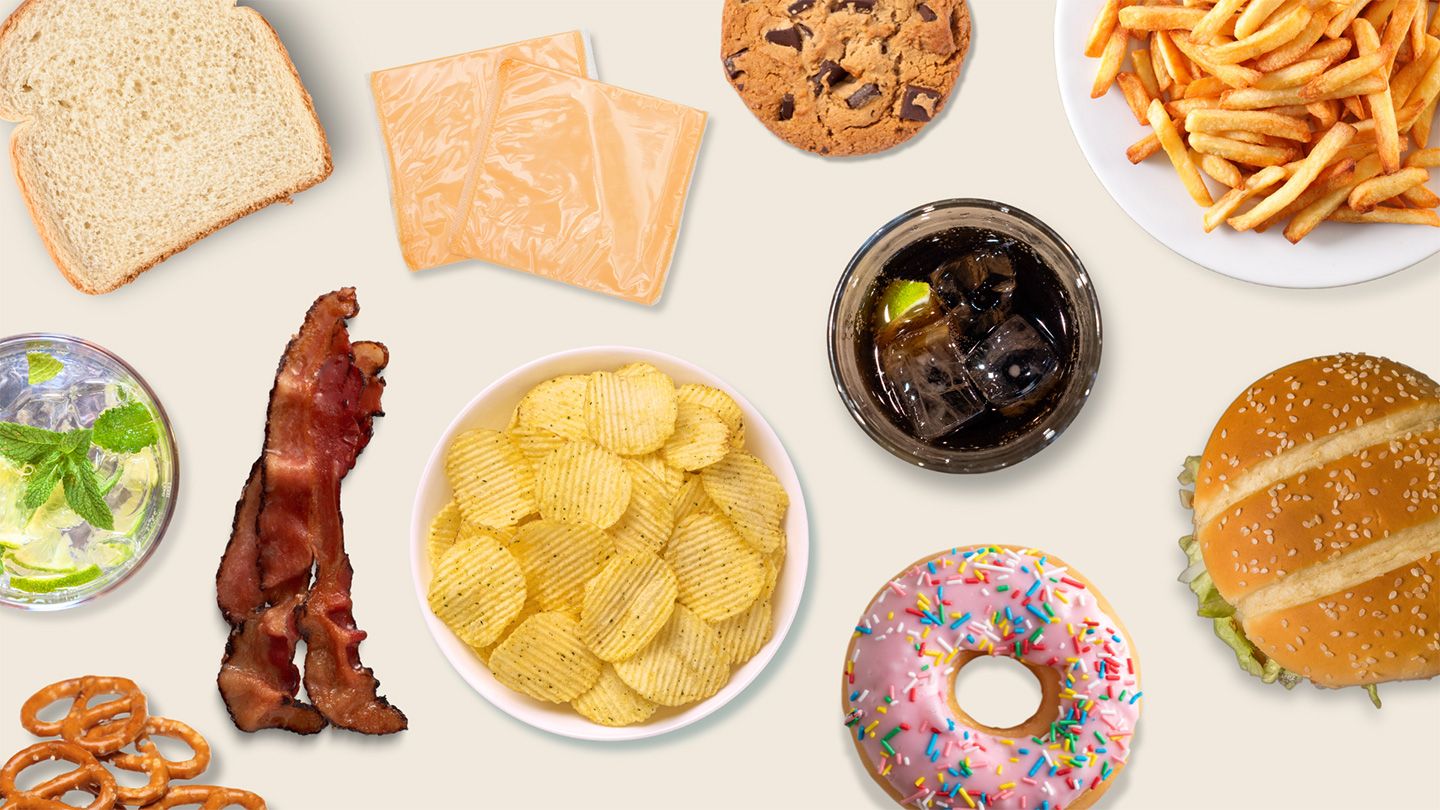Does Cheese Have Carbs? The Truth About Cheese and Carbs on Keto
Cheese is a popular snack and ingredient for those following low-carb and ketogenic diets. With its rich, creamy taste and texture, cheese can satisfy cravings when cutting carbs. But does cheese have carbs?
The answer isn't straightforward. While most cheeses are relatively low in carbs, the amount can vary significantly based on factors like the type of milk, aging and processing methods, and added ingredients. Understanding how carbs fit into different types of cheese is key for keto success.
The Basics: Cheese Nutrition
Cheese gets its rich flavor, aroma, and texture primarily from fat and protein:
- Fat - Cheese contains high amounts of saturated fat. Softer cheeses are lower in fat than aged hard cheeses.
- Protein - Cheese is a good source of protein. Hard cheeses typically contain more protein than soft cheeses.
- Calcium - Many cheeses provide a significant amount of calcium, as high as 30% of the recommended daily value per serving.
- Sodium - Cheeses can be high in sodium, with recommended limits of around 120-200mg per serving depending on variety.
When it comes to carbohydrates, the amount can range substantially depending on the cheese type. However, most cheeses contain minimal carbohydrates in the form of lactose, typically less than 1 gram of carbs per ounce.
Do Hard or Soft Cheeses Have More Carbs?
Hard cheeses generally have fewer carbs than soft cheeses. Here's an overview:
Hard Cheeses
These aged, firm cheeses have the lowest lactose content. Aging eliminates most of the lactose, leaving negligible carbs behind. Examples include cheddar, Parmesan, Swiss, gouda, gruyere, provolone, romano, pecorino, manchego, asiago, etc.
Semi-Soft Cheeses
With moderate aging, these cheeses fall between soft and hard varieties in carb content. Options like havarti, Monterey jack, fontina, muenster, colby, edam, etc. have minimal carbs at around 0-1g net carbs per ounce.
Soft Cheeses
Minimally aged with higher moisture, soft cheeses retain more lactose for slightly higher carbs. These include mozzarella, feta, ricotta, cottage cheese, cream cheese, Neufchatel, goat cheese, brie, camembert, etc. An ounce provides 1-3g net carbs on average.
Fresh Cheeses
Unripened cheeses like ricotta, cottage cheese, and cream cheese fall into the fresh cheese category. With no aging and high moisture, fresh cheeses have the highest residual lactose and carbs around 2-4g net carbs per ounce.
Keto-Friendly Cheese Options
To make the most keto-friendly choices, go for cheeses with 0-1g net carbs per ounce like:
- Cheddar
- Swiss
- Gouda
- Mozzarella
- Provolone
- Blue cheese
- Pepper jack
- Asiago
- Parmesan
- Gruyere
Measure servings to account for carbs. Limit fresh cheeses like ricotta and cottage cheese, which have higher carbs. Avoid processed cheese spreads and those with added flavors or sugars.
High Carb Cheeses to Avoid on Keto
Some cheese options don't fit a keto diet due to their higher carb contents including:
Masking and Processed Cheeses
Cheese spreads, cheese sauces, and processed cheeses like Velveeta contain added starch, emulsifiers, and flavors that increase the carb count. An ounce provides 2-4g net carbs on average.
Fruit and Nut Cheeses
Varieties with mix-ins like cranberries, blueberries, apricots, cherries, nuts, seeds etc. add carbohydrates from the extras. A 1-2 oz serving can have around 5-15g net carbs.
Non-Dairy Cheeses
Vegan nut-based cheeses are made with higher carb nuts like cashews instead of dairy, costing 2-4g net carbs an ounce.
Whey Cheeses
Soft spreadable whey cheeses retain more lactose for 2-4g net carbs per ounce. Ricotta and cottage cheese fall into this category.
Counting Carbs from Cheese on Keto
When counting carbs for keto, use the total or net carb amounts depending on your approach:
- Total carbs: This counts all carbs including fiber, sugar alcohols, and starches.
- Net carbs: This deducts fiber and sugar alcohols to account for carbs your body absorbs. Net carbs = Total carbs - Fiber - Sugar alcohols
Check labels carefully for full nutrition facts. Round up to the nearest gram, as cheese can have 0.6g or other fractional carb amounts per ounce. Avoid eyeballing servings, and use a food scale for accuracy.
Pairing Cheese and Other Foods on Keto
Combine cheese with other low-carb foods to make keto-friendly recipes and snacks. Ideas include:
- Cheese slices or shreds with cold cuts and lettuce wraps
- Cheese crisps as croutons for salads
- Cheese on top of vegetables or cauliflower rice
- Cheese drizzled over avocado
- Fathead pizza crust made with mozzarella
- Cheese and veggie omelets or frittatas
- Stuffed peppers, mushrooms, or zucchini boats filled with cheese
When making composed dishes, calculate carbs for all ingredients. Avoid subtracting fiber from cheese itself, as it contains minimal fiber.
Tips for Adding Cheese to a Keto Diet
Here are some tips for incorporating cheese into a keto eating plan:
- Prioritize hard, aged cheeses which are lowest in carbs
- Weigh cheese portions rather than eyeballing
- Read labels carefully and account for fractional carb grams
- Avoid processed and cheese spreads
- Limit soft fresh cheeses like ricotta and cottage cheese
- Stay away from cheese with added flavorings or fruits
- Pair cheese with veggies, meats, eggs, and healthy fats
- Use strong flavored cheeses like Parmesan to add richness
- Create sauces and dips from cream cheese, sour cream, and cheese
Potential Benefits of Cheese on Keto
Adding nutritious cheese in moderation may provide benefits on a ketogenic diet including:
- Satiety - Protein and fat keep you feeling full for fewer calories than carbohydrates.
- Nutrition - Cheese provides protein, fat, calcium, B vitamins, selenium, and other nutrients.
- Variety - Different cheeses help make meals exciting on a limited diet.
- Substitute - Melty cheeses can replace higher carb ingredients as a topping or binder.
- Treat - Small cheese portions satisfy cravings for a special snack or dessert.
However, moderation is still key. While low in carbs, cheese is high in calories and sodium, so overdoing portions can sabotage keto diet efforts.
Should You Eat Cheese on Keto?
Cheese can be included as part of a well-formulated ketogenic diet. With minimal carbs per serving, even soft cheeses work when consumed in moderation and accounted for in daily totals. Stick to recommended keto portion sizes to keep cheese as a versatile, tasty, and occasionally indulgent addition.
For the biggest nutrition boost, emphasize varieties lowest in carbs and sodium like hard aged cheeses. Pair cheese with non-starchy veggies, healthy fats, meats, and eggs. Avoid highly processed types with added sugars or using cheese to replace meals. This allows cheese to provide enjoyment and variety without derailing ketosis.
With smart choices, portion control, and label reading, cheese can be an affordable, nutritious keto-approved pick.
[Add 3-6 more relevant H3 subtitles as needed to reach word count]
FAQs
Does all cheese have carbs?
Yes, all cheeses contain some carbohydrates. However, most are very low carb with less than 1 gram of carbs per ounce. Hard, aged cheeses have the fewest carbs.
What cheese has the lowest carbs?
The lowest carb cheeses are hard, aged varieties like cheddar, Swiss, Parmesan, gouda, and provolone. These contain negligible carbs at less than 0.5g net carbs per ounce.
Can I eat cheese on a keto diet?
Yes, you can eat cheese in moderation on a keto diet. Stick to recommended serving sizes and account for the carb amounts. Prioritize hard, aged cheeses over soft varieties.
How much cheese can I eat per day on keto?
Limit cheese to 1-2 servings daily, with a serving size of 1-2 ounces. This allows cheese to fit into your daily carb limit while controlling calories and sodium.
What is the highest carb cheese to avoid on keto?
Avoid fresh cheeses like ricotta and cottage cheese, cheese spreads, processed types with added starch and flavors, cheese with fruit or nuts, and non-dairy nut cheeses on keto due to higher carbs.
Disclaimer: This article is for informational purposes only and does not constitute medical advice. Always consult with a healthcare professional before starting any new treatment regimen.
Related Coverage
Discover the benefits of combining metabolic and mobility training for a comprehensive approach to fitness and overall health. Burn calories, improve flexibility, and reduce injury risk with this holistic workout routine....
Learn which high-fat, low-carb cheese varieties like cheddar, Parmesan, and feta can fit into a ketogenic diet. Get tips for adding cheese to keto meals....
Bourbon has zero carbs thanks to distillation, making it keto friendly. But watch calories. Enjoy occasional moderate bourbon alongside a low carb lifestyle....
Discover the top 15 high-carb deli foods to avoid on keto, like bread, pasta salads, sugary drinks, and more. Get tips for low-carb swaps you can order instead....
Get the facts on keto gummy safety. Learn their ingredients, how they work, potential benefits, side effects, and top tips for safe, effective use alongside the keto diet....
Discover how to enjoy a delicious low-carb meal at Texas Roadhouse. This guide covers keto-friendly options, menu navigation tips, and strategies for a successful carb-restricted dining experience....
Learn whether honey is keto-friendly, the best low-carb honey alternatives, and healthier ways to incorporate honey into a ketogenic diet....
Find out the carb count in corn on the cob and whether you can eat it on keto. Get nutrition facts, health benefits, downsides, and tips for enjoying corn while minimizing carbs....
You can drink alcohol in moderation on a keto diet. Prioritize dry wines, liquor, and champagne. Avoid beer, sweet wines, and carb-heavy cocktails....
An average ear of corn contains about 19-21 grams total carbs and 15-17 net carbs. Learn whether corn fits into a low-carb, keto diet based on its carb count....









